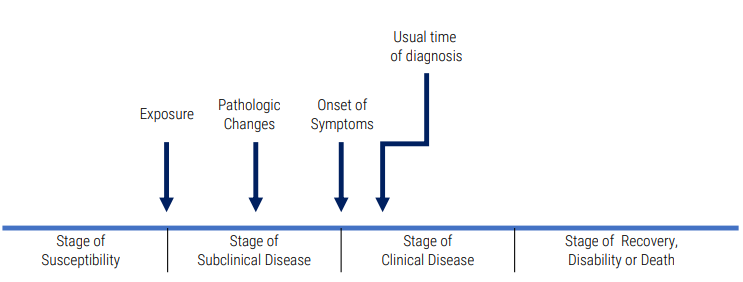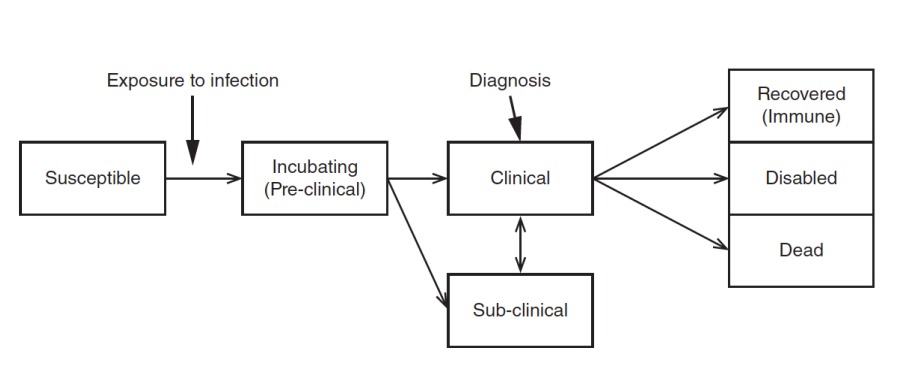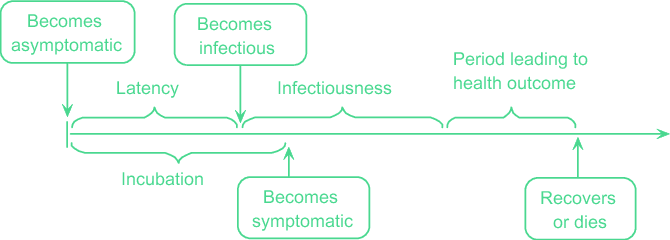Natural History Of Disease
When evaluating the effectiveness of a drug in a clinical trial, it is important to consider the natural history of the disease.
(#FOAMed written by #ChatGPT)
✶N. gonorrhoeae infection
✶Huntington disease
Figure 1. [Natural history of Huntington disease...]. - GeneReviews® - NCBI Bookshelf (nih.gov)
The natural history of a disease refers to the course that the disease takes in the absence of any treatment.
✶Natural History of Disease Timeline:
Principles of Epidemiology | Lesson 1 - Section 9 (cdc.gov) (CDC Principles of epidemiology, 2nd ed.)
This includes the progression of the disease, the symptoms that are experienced, and the outcomes that are typically seen.
✶Figure 5_2_147978_1_En | Principles of Infectious Disease Epidemiology | SpringerLink
[S]ubclinical disease, extending from the time of exposure to onset of disease symptoms, [includes] the incubation period…and the latency period.
The latency period for leukemia to become evident among survivors of the atomic bomb blast in Hiroshima ranged from 2 to 12 years, peaking at 6–7 years.
✶(CDC Table 1.7)
By understanding the natural history of a disease, researchers can better determine the impact that a treatment is having on the disease, and whether the treatment is having a beneficial effect.
A cohort study is the best way to identify…natural history of a disease…However, this type of study is less useful for examination of rare events or those that take a long time to develop
✶Comparison of Prospective Natural History Study Designs
Cohort studies: marching towards outcomes - PubMed (nih.gov)
It is important to consider the natural history of a disease when designing a clinical trial, as this can help to ensure that the trial is adequately powered to detect any differences between the treatment and control groups.
✶How to Use Registries and Natural History Studies in Rare Diseases (premier-research.com)
✶White Paper: Natural History Studies in Rare Diseases and Genetic Biomarkers - Evidera
Ready for a quiz?
✎Principles of Epidemiology | Lesson 1 - Quiz| (cdc.gov)















Comments
Post a Comment